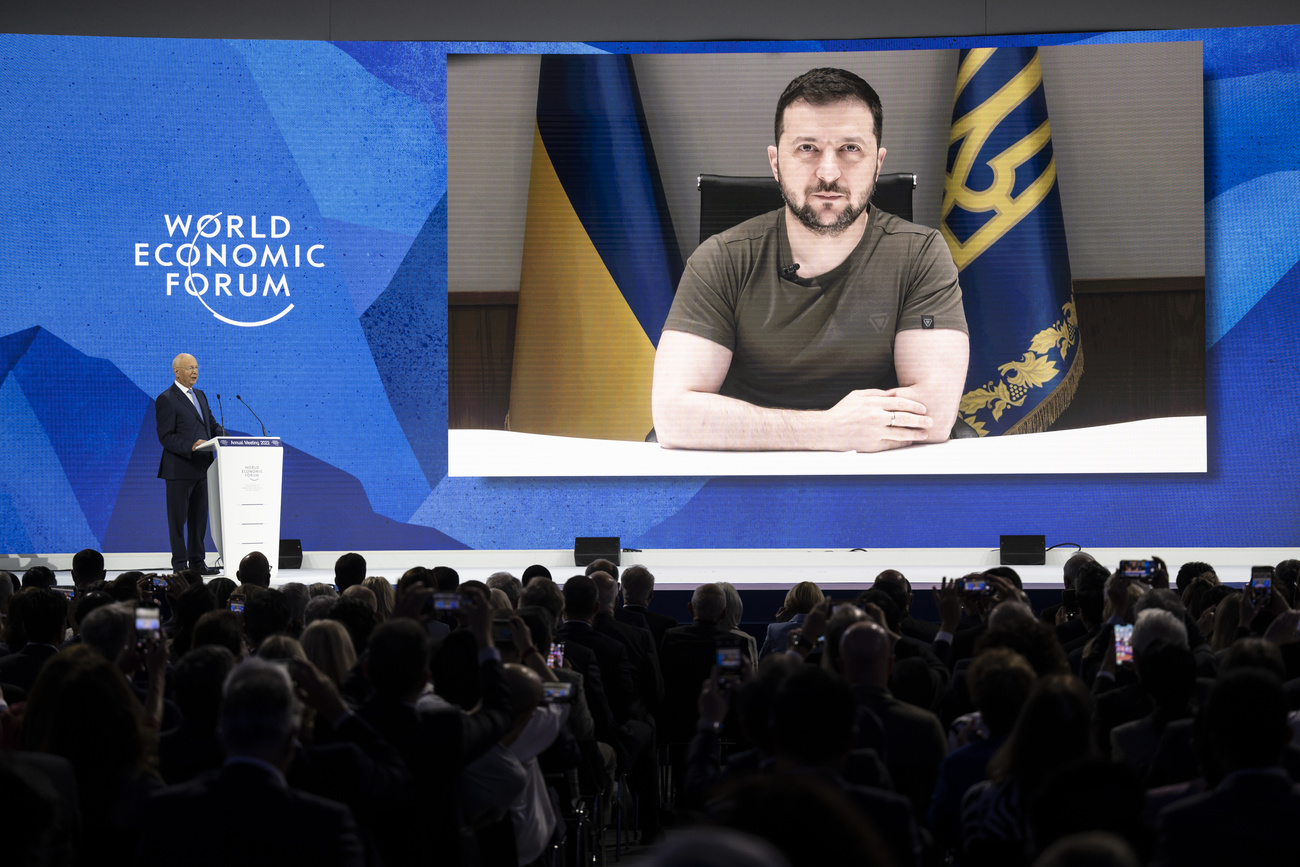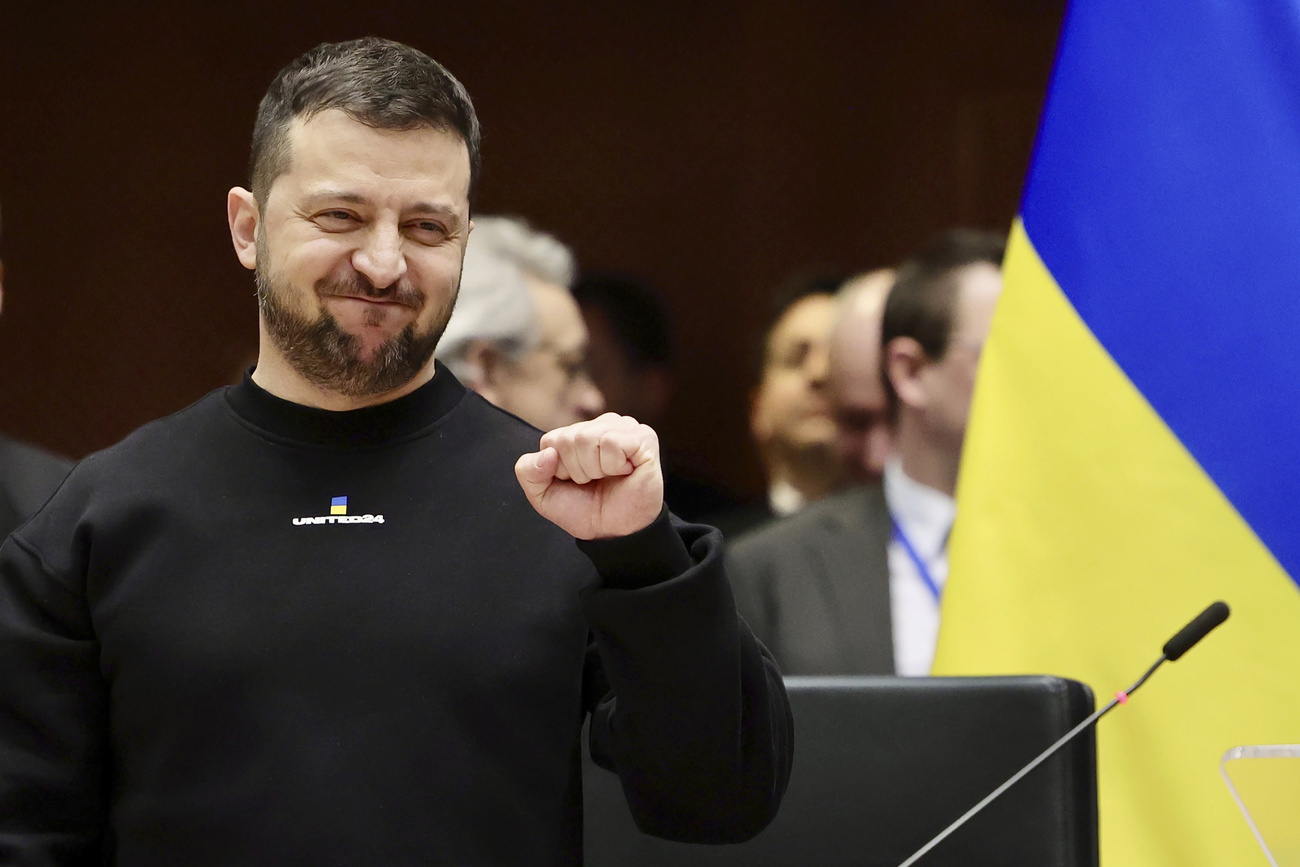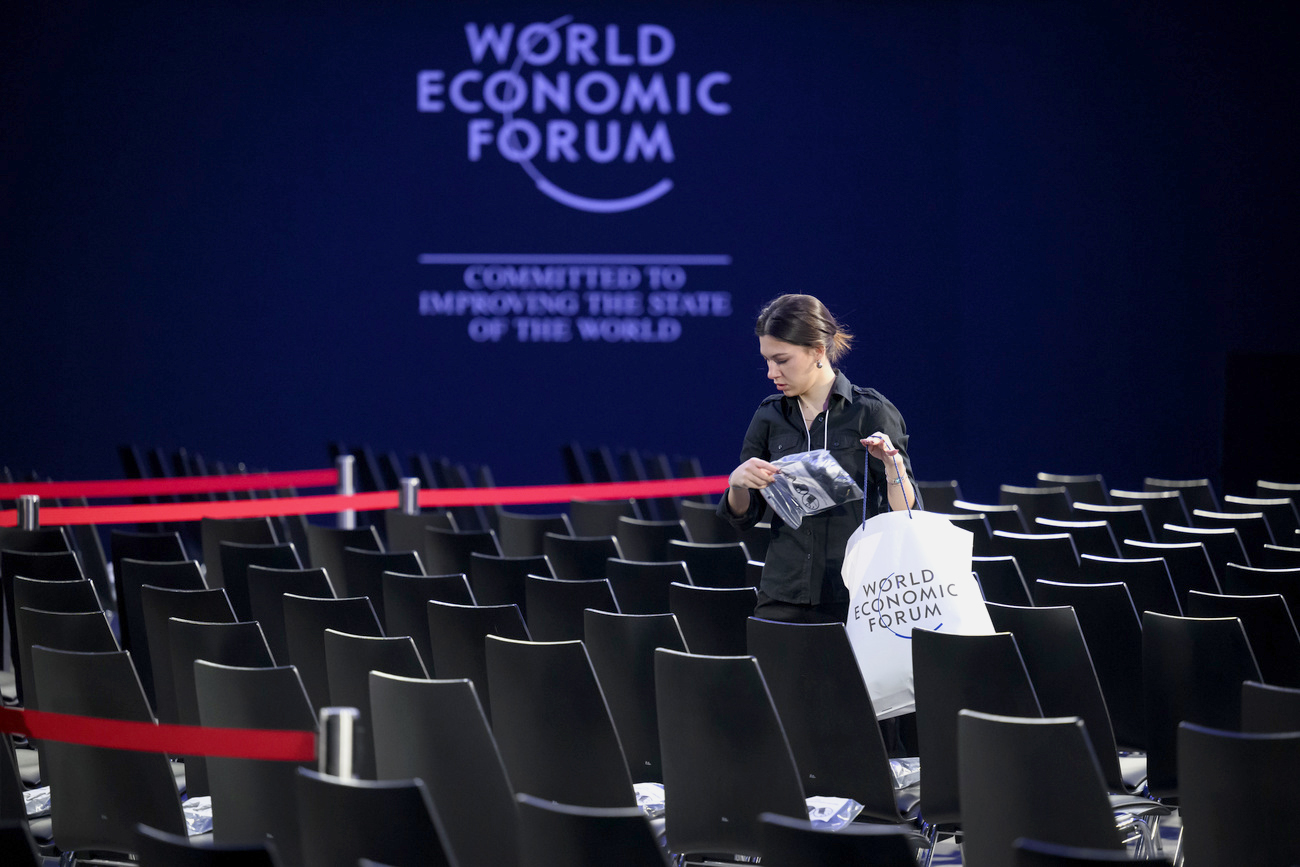
Who’s who at WEF and what it tells us about the world

The guest list of the World Economic Forum’s 54th annual meeting includes the top brass in business, eager to look beyond the pandemic and economic woes of the past three years. But with wars raging and unfolding in many parts of the world, many participants will be focused on urgent geopolitical issues.
An ocean explorer, a world-renowned fashion designer and an award-winning breakdancer all made the guest list of this year’s event, taking place January 15-19.
But with wars in Gaza and Ukraine on the top of people’s mind, eyes will be on the key political players in the Swiss resort town of Davos. Among the 2,800 participants from 120 countries are 60 heads of state or government and 40 foreign ministers. WEF organisers said the meeting takes place “against the most complicated geopolitical and geo-economic backdrop of the last few decades”.
Ukraine will have a sizeable delegation, including President Volodymyr Zelensky, who will be in Davos for the first time since the war started. On Sunday, a day before the official meeting begins, some 70 national security advisers will come together for discussions hosted by the Ukrainian and Swiss governments on Zelensky’s peace plan.

More
WEF to welcome Ukrainian President Zelensky
How much peace mediation can happen in Davos remains to be seen. After Russia invaded Ukraine in 2022, the WEF disinvited and distanced itself from Russian delegates, many of whom had been regular participants in the event. According to the latest participants’ list, no official Russian delegate or firm will attend.
The WEF will also try to flex some diplomatic muscle on the Middle East. “A key priority is how to avoid further escalation and also [consider] what is next because we need to inject some silver linings,” said WEF President Børge Brende in a press conference on January 9. Israeli President Isaac Herzog is on the guest list as well as Lebanon’s Prime Minister Najib Mikati and the prime ministers of Jordan, Qatar and Iraq.
In keeping with the previous WEF annual meeting, the United States and China are both sending high-level delegations but not their presidents. Chinese premier Li Qiang is on the guest list, the most senior leader to attend since President Xi Jinping in 2017. US Secretary of State Antony Blinken and National Security Advisor Jake Sullivan are expected to attend. Newly elected Argentine President Javier Milei will also make his first major appearance at an international conference.

More
Can WEF break the impasse on global governance of AI?
Swiss Defence Minister Viola Amherd, who holds the rotating Swiss presidency in 2024, will keep with tradition by giving the welcome address. French President Emmanuel Macron is also supposed to give a speech on France’s role in the future of Europe. The prime ministers of Belgium, the Netherlands and Greece, along with President of the European Commission Ursula von der Leyen, will also be there.
With elections taking place in over 50 countries in 2024, including in the US and India, there should be some political showmanship on display. India is hosting three lounges on the Davos Promenade under the banner “your partner for growth”. But what is likely to dominate discussions inside the WEF Congress Centre is concerns about the spread of misinformation and disinformation fuelling social unrest and threatening democracy.
Injecting optimism
As in past editions, business has a front row seat at the WEF and will try to inject some optimism after urgent crises including the pandemic and inflation dominated talk in Davos last year. Among the 1,800 business participants are some 800 CEOs or board chairs including regular attendees such as Vas Narasimhan from Novartis, Marc Benioff from Salesforce and Mark Schneider, CEO of Nestlé. UBS Group CEO Sergio Ermotti will be speaking in a session on whether banks are ready for the future – a timely discussion less than a year after UBS’s takeover of Credit Suisse under a Swiss government-orchestrated deal.
But the executives likely to attract the most buzz in Davos are start-up founders and tech pioneers such as Sam Altman, founder of OpenAI, Andrew Ng, from DeepLearning.AI, and Jack Hidary, CEO of quantum computing start-up SandboxAQ. There are at least 25 sessions dealing with the ethics and promise of artificial intelligence and several side events including at the AI House DavosExternal link, sponsored by several Swiss groups, which is making its debut on the Promenade.
The 2024 addition also has record business representation from Latin America and a sizeable presence of Asian businesses, which WEF organisers say reflects wider global economic trends of “reshifting and rebalancing”. Executives of Chinese companies Foxconn, Hisense and Huawei are expected to be in Davos.
As the champagne flows, civil society groups sprinkled through the congress centre halls will try to remind attendees that economic and technological gains aren’t being shared equally, and many of today’s shocks are exacerbating divides. David Miliband, president of the International Rescue Committee, Luc Triangle, general secretary of the International Trade Union Confederation, and Tirana Hassan, executive director of Human Rights Watch, are hoping to get some airtime and influence debate in Davos.
Rounding out the event are guests from the science and culture world including the French-Turkish breakdancer Yaman Okur, Mattie Rodrigue who heads scientific programs at the ocean exploration initiative OceanX, and designer Diane von Furstenberg.
Edited by Virginie Mangin.
More

In compliance with the JTI standards
More: SWI swissinfo.ch certified by the Journalism Trust Initiative





























You can find an overview of ongoing debates with our journalists here . Please join us!
If you want to start a conversation about a topic raised in this article or want to report factual errors, email us at english@swissinfo.ch.